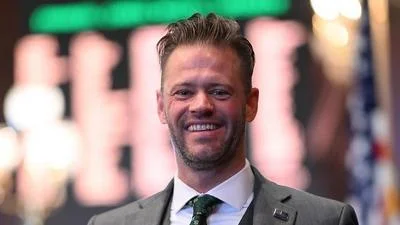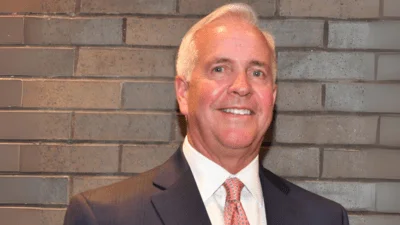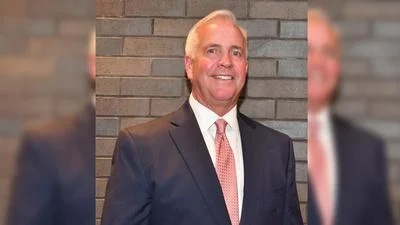Rep. Mark Batinick (R-Plainfield) | File Photo
Rep. Mark Batinick (R-Plainfield) | File Photo
The economic damage linked to the COVID-19 pandemic may well continue into 2021, and homeowners could feel a bite because of it.
State Rep. Mark Batinick (R-Plainfield), said he is aware of concerns that a decline in commercial property assessments may lead local governments to focus on property tax revenue from homeowners.
A Wirepoints article co-written by Ted Dabrowski and John Klingner predicts Illinois homeowners will likely pay higher property taxes because of the coronavirus economic impacts.
“The lockdown has left many businesses and commercial properties with reduced or no income for months, bringing down the economic value of their properties,” it states. “Many owners can be expected to appeal their property assessments to reflect that reality. Commercial and office space in downtown Chicago and other suburban areas will also see their assessments drop as businesses shrink their footprint going forward. Nationwide, over 74 percent of CFOs plan to permanently shift some employees to only work remotely post-coronavirus, according to a recent Gartner survey.”
They argue that with a decline in commercial property values, local governments have two options: Reduce expenditures or raise property taxes. The article quotes state Sen. Craig Wilcox, who said cities and public employee unions seem unwilling to bend right now, leaving local governments with little choice.
“We’ve seen very few public sector unions kicking in on this ‘Illinois is all in this together,’" Wilcox said. "There’s not been a halt to automatic COLAs. And there’s not been agreement by the public unions to renegotiate any collective bargaining agreements on a short-term scale. We’ve not seen significant layoffs. I don’t think we’re going to see lower tax levies come Nov-Dec of this year.”
Batnick told Will County Gazette it is not a promising scenario.
“The decline in commercial property value is a very strong possibility,” he said. “Particularly in the retail and office sector. Since local governments rely heavily on property taxes to fund their operations this will have an impact. Either budgets will need to be cut or property tax rates will end up increasing.”
Batinick has been an advocate for property tax reform since joining the Legislature in 2015. He represents the 97th District, which includes portions of Oswego, Montgomery, Naperville, Plainfield, Bolingbrook, Joliet and Shorewood.
After the 2020 Illinois Legislature concluded with a brief special session, Batinick said he was disappointed property taxes were barely touched on.
“I would’ve like to seen property tax freeze to go along with it,” he told Will County Gazette after the session concluded. “We need shared sacrifice.”
Instead, homeowners may bear the load to keep local governments operating.
This is just more of the same bad news for Illinois taxpayers, who have the nation’s highest property taxes and have seen their share of the tax load increase markedly.
In 1995, they paid roughly half of the $11.7 billion in total property taxes collected in the state. Now, they are assessed nearly two-thirds of $31.8 billion in taxes.
As Wirepoints reported in January 2019, the numbers tell the story.
“The traditional method for measuring the burden of property taxes is to look at a household’s property tax bill and compare it to a home’s value. Under this method, Illinoisans pay the highest property taxes in the nation. At 2.7 percent, Illinoisans pay far more than residents in neighboring states — twice more than those in Missouri and three times more than residents in Indiana.”
Chicago homeowners might especially feel a pinch, as the city relies more on tax revenue from commercial properties than other parts of the state. With the city facing a $700 million deficit, higher property taxes may be inevitable.
Batnick said there are options that could ease concerns about another property tax hike.
“There have been some relief dollars from the feds,” he said. “If they are managed properly we should be able to avoid a difficult situation. I just hope that happens.”






 Alerts Sign-up
Alerts Sign-up